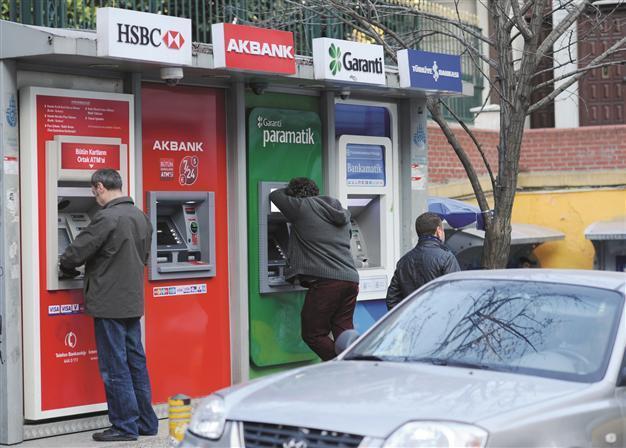Moody’s reviews 10 Turkish banks for potential downgrade
LONDON

Akbank, Asya Participation Bank, Garanti Bank, İşbank, Şekerbank, Türk Ekonomi Bankası, Vakıfbank, Yapı Kredi, Halkbank and Ziraat Bank will be reviewed by Moody’s. DAILY NEWS Photo
International credit rating agency Moody’s has announced that it has placed 10 Turkish banks on review for a possible downgrade in their ratings, citing stiff conditions for banks and the tense political environment in the country.“Pressures on the banks’ standalone credit strength, as the operating environment for the banking system will become more challenging over the next 12-18 months,” the agency said in a statement released late on March 18.
Moody’s noted three main factors as the reasons behind the pressure on the banks: A material slowdown in real GDP growth, which is still exposed to significant downside risks, increased funding costs for Turkish banks because of the impact on emerging markets from U.S. Fed tapering, and the economic recovery in developed markets, and a climate of uncertainty affecting the banks because of Turkey’s current political developments.
Moody’s notes that there is a significant downside risk to the growth forecast as the impact of the U.S. Fed tapering and the country’s political developments continue to unfold, potentially triggering further liquidity tightening and weakening domestic demand.
One of the key drivers of the gloomier view is Turkey’s slower economic growth, which is expected to drop to 2.5 percent at the end of 2014, from 4.1 percent in 2013.
Rising funding costs, a volatile exchange rate that has depreciated by over 20 percent over a one-year period, and above-target inflation will also add to the banks’ headaches, hitting their profitability and asset quality, according to the agency.
The 10 banks identified by Moody’s are Akbank, Asya Participation Bank, Garanti Bank, İşbank, Şekerbank, Türk Ekonomi Bankası, Vakıfbank, Yapı Kredi, Halkbank and Ziraat Bank.
With regard to asset quality, Moody’s says the most vulnerable segments will be credit to SMEs, unsecured consumer lending, and corporates with open FX positions. The highly unseasoned loan books also add elements of risk.
Still, Moody’s praises the Turkish banking system for “having the capacity to absorb potential credit challenges ahead because it remains well-capitalized.” In a statement released last week, Moody’s fellow, Fitch had said Turkish banks are able to withstand moderate shocks to the quality of their assets and performance, largely due to their capacity to absorb losses.
However, Fitch had also warned the higher interest rates in the country would raise debt-servicing costs and could lower economic growth, both of which may lead to a rise in non-performing loans, particularly for small-medium enterprises.
















